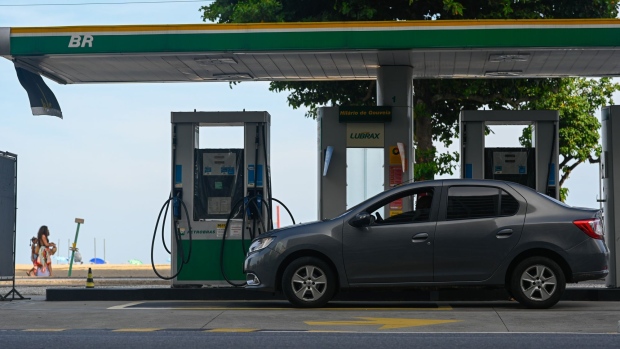Oct 31, 2022
Here Are Four Petrobras CEO Candidates to Watch as a Lula Shakeup Looms
, Bloomberg News

(Bloomberg) -- Investors are closely watching whom Brazilian President-elect Luiz Inacio Lula da Silva will pick to lead Petroleo Brasileiro SA to gauge how much its business strategy will change under the new, more left-wing administration.
Lula, a former president who oversaw Petrobras’s expansion into the famed pre-salt region that now delivers about 70% of its total oil and gas production, will start conversations with parties in his political coalition to reach a consensus on whom to select to take key positions at the state-controlled producer and the energy ministry.
Shares fell as much as 8% at the open Monday in Sao Paulo.
Read More: Petrobras Drops After Lula Win Sparks JPMorgan Downgrade (1)
Petrobras’s C-suite has undergone a period of unprecedented turmoil with outgoing President Jair Bolsonaro pushing out three chief executive officers since early last year for failing to contain politically sensitive fuel prices. During the campaign, Petrobras came under pressure from both candidates to contain them, and there is concern that Petrobras could go back to subsidizing motor fuels as it did during previous Workers’s Party administrations. Investors are also worried that Petrobras under new management will start investing in less-profitable segments such as refining, which could erode the amount of dividends the company pays.
Read More: Lula’s Petrobras Would Seek Energy Transition, Expand Refining
The main potential candidates cited by industry insiders include a senator aligned with Lula and a former Petrobras CEO from Lula’s first administration.
Lula also has deep ties with Brazil’s business community after a life in public office from which he could tap for leaders. The government controls Petrobras’s board through a majority of voting shares and recommends candidates for top management. The current CEO Caio Paes de Andrade’s term ends on April 2023.
The Candidates:
Jean Paul Prates:
A senator with Lula’s Workers’s Party who was his point person on energy policy during the campaign. Prates worked as a legal adviser at Petrobras’s international division in the 1980s and as an oil and gas consultant. He also helped draft legislation that opened the industry to competition in 1997. In an August interview, Prates said that under Lula, Petrobras would reverse the years of downsizing that happened under outgoing President Jair Bolsonaro. He cited refining, renewable energy and international operations as targets for increased investments.
Jose Sergio Gabrielli:
An economist and former Petrobras CEO who led the company when it began exploring the pre-salt formation and discovered the largest group of offshore oil fields on the planet. He was also in charge when a massive embezzlement scheme known as Carwash was going on. Gabrielli came under investigation but wasn’t convicted of any crimes.
Mauricio Tolmasquim:
An engineer and academic at the Federal University of Rio de Janeiro, or UFRJ, who served as the head of Brazil’s Energy Research Agency, or EPE, from 2005 to 2016 when the Worker’s Party was in power. In the role he was responsible for carrying out technical studies on Brazil’s energy industry and helping to shape government policy.
William Nozaki:
A left-leaning political scientist and economist who participates in strategy discussions at Lula’s Workers Party. Nozaki is also a coordinator at the Institute for Strategic Studies in Petroleum, Natural Gas and Biofuels, or Ineep, a think tank associated with Brazil’s main oil union. He favors increased investments in Petrobras’s refining network and a slow down in divestments.
©2022 Bloomberg L.P.







